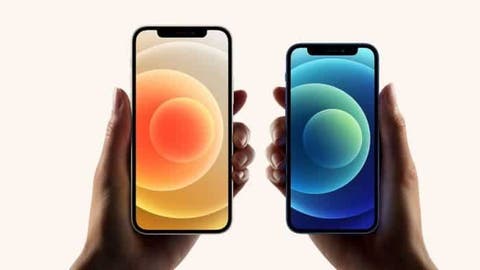Last October, Apple released the iPhone 12 series of mobile phones, which included the iPhone 12 mini, iPhone 12, iPhone 12 Pro and iPhone 12 Pro Max.
The iPhone 12 mini features a 5.4-inch OLED display and is the company’s most inexpensive new smartphone. The low price didn’t help, though, and the iPhone 12 mini is currently the worst-selling model, accounting for about 6% of sales.
The renowned investment firm JPMorgan Chase recently released its latest forecast, in which analyst William Young cut its iPhone 12 and iPhone 12 mini production forecasts by 9 and 11 million, respectively. At the same time, he also confirmed that market demand for the iPhone 12 mini is weak and global sales are too low. The analysts, citing their supply chain sources, added that Apple will cease production of this phone in the second quarter of 2021.
Thus, the iPhone 12 mini may become the most short-lived flagship model in iPhone history. At the same time, it is expected that in the new line of smartphones there will again appear a small model, which Apple can optimize and make more attractive (iPhone 12 mini battery life is very bad).
The analyst also raised the iPhone 12 Pro Max sales forecast by 11 million units.
Apple finally defeated Samsung in the global smartphone market
Apple overtook Samsung to become the world’s leading smartphone brand amid record sales of iPhone smartphones. The company showed a huge jump in the last quarter of last year, while Huawei‘s position weakened greatly.
According to Counterpoint Research, shipments of iPhone smartphones increased 22% in the previous quarter. The surge is driven by the release of the iPhone 12 lineup, which supports fifth-generation networks. Also, sales of previous models did not fall, the demand for which is stable after the price decline.
The company has shipped 90 million smartphones and has more than 23% market share. Analysts note that Apple has strengthened its position in the premium segment of smartphones in China. According to Apple CEO Tim Cook, two of the top three selling premium smartphones in China are from Apple.
The second place in the quarter belongs to Samsung, which received about 19% of the market. The third place went to Xiaomi, followed by Oppo and Vivo, which took the fourth and fifth places, respectively. Huawei dropped to 6th place.
If we consider the results for the year, then Samsung is in the lead, Apple is second, Huawei is third, followed by Xiaomi, Oppo, Vivo and Realme. The latter was the fastest growing brand in the past year.
Counterpoint Research’s data is broadly consistent with estimates by another analyst firm, IDC, which we have already published.
Follow Gizchina.com on Google News for news and updates in the technology sector.
